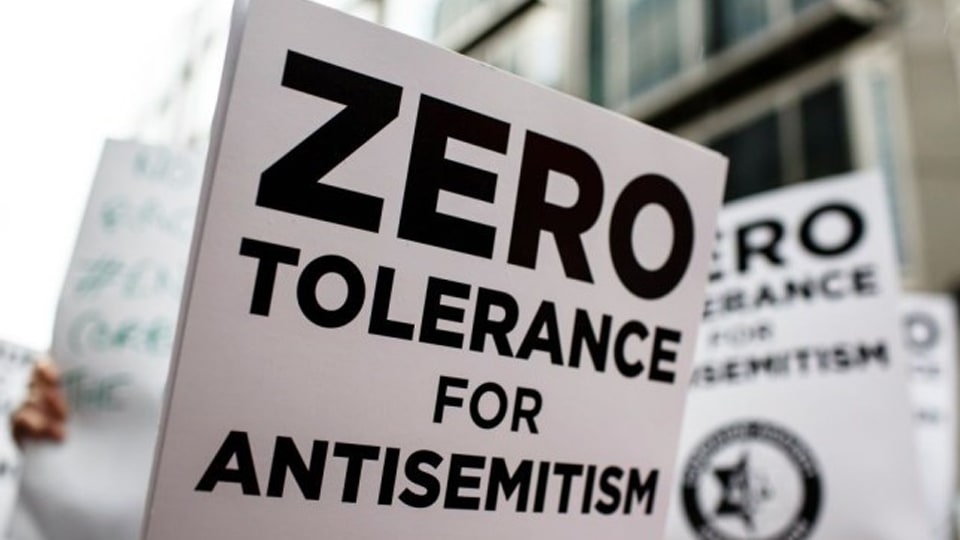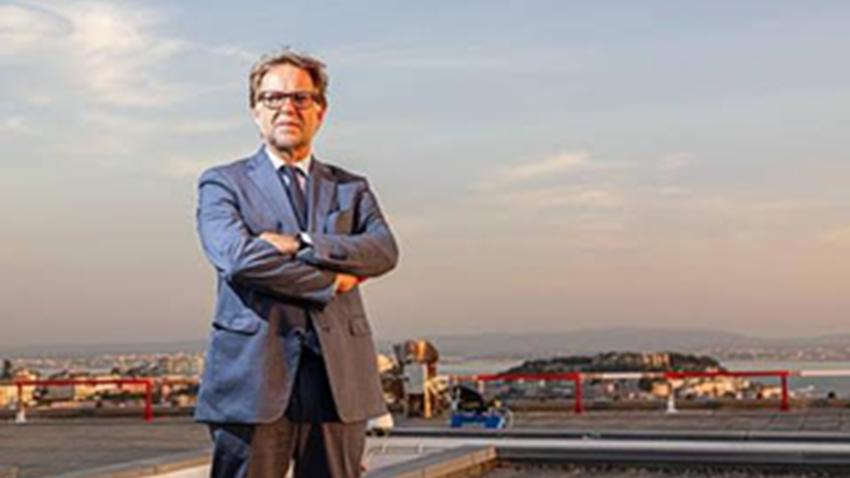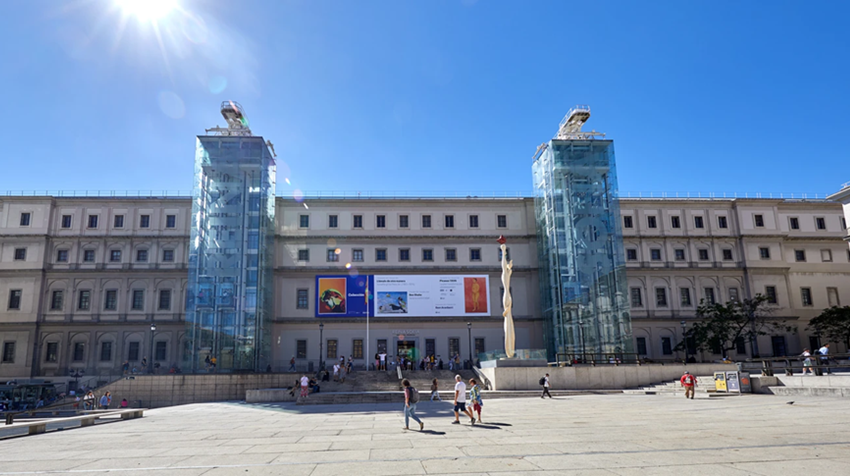Yesterday, Sunday, March 10, a new regrettable antisemitic episode took place in Portugal. A longtime member of Lisbon's Jewish community, Esther Mucznik, was mistreated when she voted in the country's elections. “Today I went to vote like all of you", she wrote. "But when I arrived at the polling station and handed over my identity card, which naturally has my name on it, the person in charge simply said "I don't like it". Astonished, I reacted by asking him "What don't you like?" And he replied "I don't like your name and the massacres they are carrying out over there." I said to him, look, I'm Portuguese, I am voting as a Portuguese citizen, and as you are breaking the law in a place and on a day where political neutrality is the rule, I'm going to file a complaint with the authorities. I went to vote and when I came back he continued his attack."
The case is significant because, along with many other occurrences, it shows how anti-Judaism, anti-Jewish success and anti-Israelism are increasingly mixed. Israel is the Jew of the nations, and the Jews of the nations are the target of Israel's haters.
The year 2024 has barely begun and has already witnessed a rise in antisemitic rhetoric and attacks. Threats against the Jewish population in Oporto, posters denouncing Jewish landlords of the city, and the publication of lists of Israeli Jewish businessmen by a political newspaper have added to the concerning trend. One noteworthy demonstration in early February urged people not to rent houses from what they referred to as "Zionist murderers," "Neither Haifa or Boavista", highlighting tensions within the community. Subsequent actions, such as the publication of a list of individuals working for Israeli investors by Esquerda.net newspaper, have further exacerbated the situation.
The Jewish community of Oporto has taken legal action, filing a criminal complaint with the Portuguese Attorney-General against those inciting hatred and violence against Israeli and Jewish citizens and residents. They have also called for accountability regarding the publication of the list by that left-wing newspaper. The community felt the immediate danger posed to their physical safety by such actions.
Some months ago, on October 10, 2023, the central synagogue in Oporto was vandalized with the words "Free Palestine" and "end Israel apartheid." The graffiti appeared a few hours after the conclusion of a rally in support of Israel held in the local municipal plaza. "Haters of Israel act out their hate against local Jews," said Gabriel Senderowicz, president of the Oporto Jewish community.
Despite the relatively small Jewish population, now estimated at around 5,000, there is a pressing need for comprehensive condemnation and concrete action from political and legal authorities to combat hate speech and ensure the safety of Jewish communities in Portugal. Israeli ambassador to Portugal Dor Shapira, alongside B’nai B’rith Portugal President Gabriela Cantergi, cautioned recently that the silence of politicians in response to increasing antisemitism in Portugal could potentially lead to physical attacks against Jews. This concern arises amidst a noticeable lack of condemnation among Portuguese politicians across the political spectrum following a surge in antisemitic incidents across the country.
On March 11, 2022, a week before publication of a Government decree which repealed the Sephardic Law of Return, two weeks before the dismissal of the chairman of SIRESP – the Integrated System for Portugal's Security and Emergency Networks, and three weeks before the computers in her house were stolen, authorities from Lisbon that were used for political purposes ordered illegal searches and seizures at the largest synagogue of the Iberian Peninsula, at the Jewish Museum of Oporto and at the homes of leaders of the Jewish community of Oporto.
On that day, the desire of the police and prosecutors was so great to find documents about the French owner of Altice (whose Portuguese origin had been certified properly by another Jewish community), that they forgot about the case of a Russian citizen that the newspapers had talked about endlessly. The "indictments" presented by those Lisbon authorities against the Community and the French businessman were generalizations anchored in the ancient myths of money, tricks and the sale of the country. They were looking for suitcases filled with cash and misappropriation of funds, all “based on nothing”, as the Court of Appeal would later rule on September 28, 2022.
The Portuguese State acted as it did in the times of the Inquisition, when it pointed to members of the Jewish community, invaded their homes and workplaces, based on anonymous denunciations with no empirical support. The process was a disgrace. It was based on anonymous reports from disreputable characters, newspaper clippings, and emotions. No documents, no surveillance reports, no wiretaps, and no witnesses were produced. It was only the wishes of some weak Lisbon elites and nothing more than that.
The Oporto Jewish Community sued the State for the abuses, in the Civil Court, in the Criminal Court, at the European Court of Human Rights, at the European Public Prosecutor's Office, and at the European Commission.
Those who promoted the illegal searches and seizures knew that they would provoke hatred and discrimination against the Jewish Community of Oporto for a long time. Thousands of hate messages were sent. The wording of the messages included: “Mafia organisation”, "corruption", "gang of sell-outs", "they’re into schemes", "these people were never trustworthy", "history speaks for itself", "even religion", "an Israeli would rather lose a friend than one euro", "Weren’t the Jews always like that?", "chased away from everywhere", “the Rabbi is corrupt”, "it stretches from the Rabbi to the owners of Chelsea and Altice", "they are what they’ve always been, criminals", "even the creation of Israel is based on the same imaginary assumption that they are entitled to the land”, "Israel has carte blanche to do what it wants in Palestine", "it’s always confused me that a Portuguese community should adopt as its name that of a foreign, Israeli community".
For decades Portugal had the reputation of being free from antisemitism, because there were not enough Jews to have any visibility. Circumstances have changed in recent years, mainly due to the nationality law that allowed the return of Jews of Sephardic origin and which has since been scandalously canceled through a retroactive law by parliament and the political constitutional court.
That law became a target for angry antisemites since 2020, when a group of influential people in Portugal tried to end it by means of a defamation campaign against the Jewish communities involved in the certification process. The president of the Jewish community of Lisbon, José Carp, characterized the case as "a Dreyfus case". Without being able to single out one wrong case and omitting any positive effect of the law, those people spread hate on social media, using their journalist friends, media agents, columnists and professional slanderers to launch stereotypes against the Jewish communities ("material interests", "business", "money"), suspicion (“the Sephardim merely want passports of convenience”), exaggerations ("there are tens of millions of candidates”), anti-Jewish feeling ("the Sephardim are married and children are constantly being born"), slander (“to obtain citizenship applicants need only pay thousands of euros to genealogists, lawyers and Portuguese Jewish communities”), forgeries (taking sentences from the Communities’ official websites and twisting their meaning), lies ("the law requires a Portuguese or Ladino name") and anti-Israel feeling (condemning the abusive publicity in the State of Israel but not in other countries).
In addition to this political scheme that attempted to assassinate the Jewish community (later directed exclusively against the Oporto community as it was by far the strongest in terms of numbers, religion and culture), recent years have shown many regrettable popular episodes, like when stones were thrown at the windows on the north façade of Oporto synagogue during the night and thirteen glass panes were broken.
In 2017, residents in Alfama contested the creation of the Jewish Museum of Lisbon, an initiative of Lisbon City Hall and the Israeli Community of Lisbon. They had chosen Largo de São Miguel (São Miguel Square) because it was a “symbolic place” for Judaism, the site of the old Jewish quarter of Alfama, where there is still a Rua da Judiaria (Street of the Jewish Quarter) today. It was claimed that “it would break with the tradition of the neighbourhood” and “deface Largo de São Miguel”, which houses the eponymous church. Also the construction in Cascais of the Chabad Centre, a venue for religion, culture and leisure similar to others in some of the most prestigious and tolerant cities of the world was opposed by noisy residents. They wished the plot of land to be turned into a garden, although thus far it had been nothing but a construction site and before that, merely open ground belonging to the Catholic Church.
A decade ago, the Anti-Defamation League (ADL) commissioned an opinion poll on Portuguese territory and concluded that there were at least 1,8 million Portuguese with antisemitic feelings. The Jews are hated for their behaviour (25%), the Jews only care about themselves (26%), the Jews consider themselves better than others (21%), the Jews are very powerful (43%), the Jews are influential in the financial markets (43%), the Jews control world business (21%), the Jews control the United States Government (23%), the Jews control the media (17%), the Jews are responsible for most wars (15%), the Jews are more loyal to Israel than to Portugal (56%), the Jews talk too much about the Holocaust (49%), the Jews exaggerate the number of deaths (10%), and the Holocaust is a myth (1%).


































